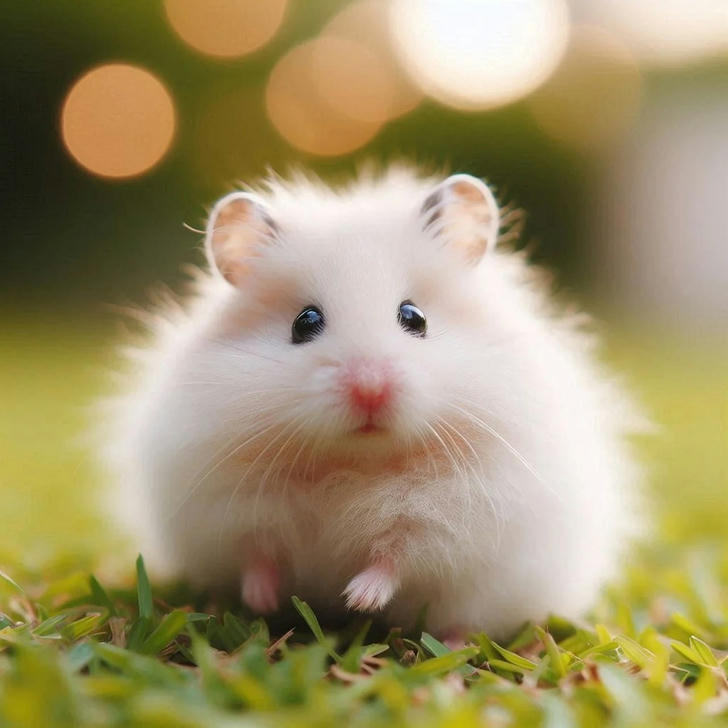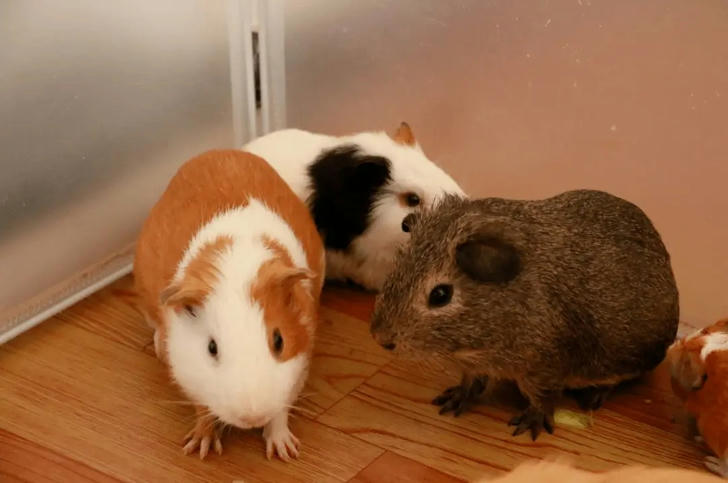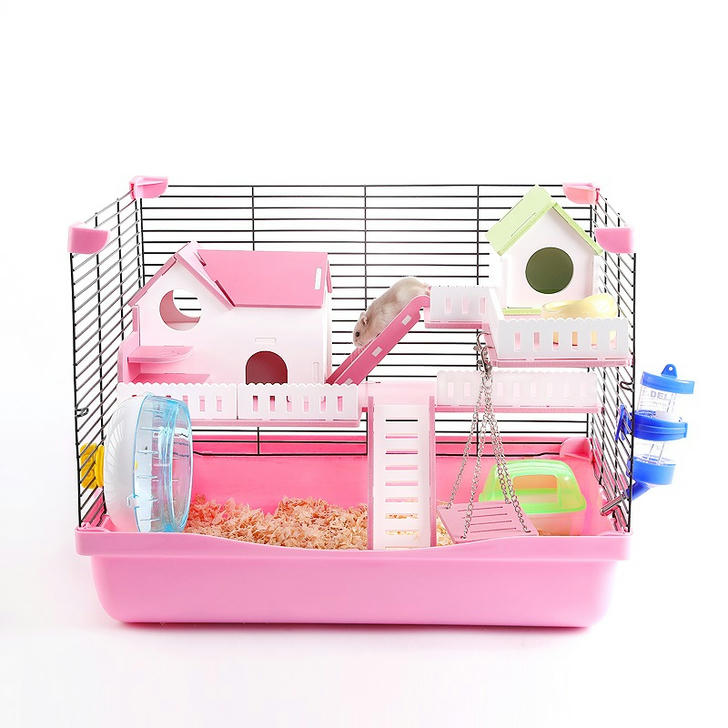Rodent Pets Suitable for Children
Small mammals are lively and active, providing abundant opportunities for entertainment and play. Many small mammals enjoy socializing and can interact with children, offering companionship and fun while reducing feelings of loneliness. They typically require less space and daily care, making them suitable for children's involvement in feeding and cleaning. Compared to larger pets, small mammals are generally safer for children, as they are usually non-aggressive and well-suited for family care. Having pets can teach children responsibility, helping them learn to care for a living being, feed them regularly, and maintain their living environment.
Common Small Mammals
Hamsters

Hamsters are usually small in size, making them suitable for living in limited spaces, which is ideal for children and families. They have a gentle temperament, are typically non-aggressive, and are great for interaction with children, providing companionship and lively fun.
Guinea Pigs

Guinea pigs are larger than hamsters, typically weighing about 1 to 2 kilograms. They are gentle and friendly, usually not aggressive towards people, making them suitable for interaction and cuddling with children. Active and playful, guinea pigs love to run, explore, and play in their cages, bringing joy and entertainment to kids. They can adapt to various environments but need a quiet and safe space to minimize stress.
Rabbits

Rabbits have a gentle and friendly nature, often enjoying interaction with people, making them excellent family pets. They are very curious and love to explore their surroundings, playing and hopping around, which provides enjoyment for children. The average lifespan of a rabbit is typically between 8 to 12 years, making them suitable for long-term companionship and care for kids.
Considerations for Choosing Small Mammals
Age Appropriateness: When selecting small mammal pets suitable for different age groups of children, it is important to consider the pet's temperament, care requirements, and the child's sense of responsibility.
Guinea Pigs: Ideal for children aged 0-4 years, they are gentle, friendly, and easy to handle, making them great for young children to observe.
Hamsters: Suitable for preschool-aged children, they are lively and cute, catering to children's curiosity. They are relatively easy to care for and can help teach responsibility.
Rabbits: Appropriate for elementary school-aged children, they have a gentle and curious nature, making them great for interaction. Caring for rabbits can help children develop a sense of responsibility through feeding and cleaning.
Pet Care Requirements:
Provide high-quality food suitable for the specific type of pet, including proteins, vitamins, and minerals. Establish regular feeding times to maintain a consistent diet. Ensure that clean drinking water is available at all times, especially for pets primarily on dry food. Keep the pet's living environment clean and hygienic, including regular cleaning of waste and changing bedding. Regularly groom long-haired pets and bathe them when necessary to keep their fur clean. Ensure adequate exercise based on the type of pet and its needs to maintain health.
Considerations for Allergies:
Choose pet breeds that are considered "low-allergen," such as certain dog breeds (like Poodles) or cat breeds (like Sphynx cats). Small mammals like guinea pigs and hamsters may have less impact on allergy sufferers due to their fur and dander.
Benefits of Interacting with Small Mammals
Interacting with small mammals helps establish a trustful relationship between pets and their owners, enhancing emotional connections. Caring for small mammals can teach children responsibility and foster their social skills, as they learn to interact kindly with other beings. Playing with pets encourages physical activity, promoting health and fitness development. Overall, these interactions contribute to various aspects of a child's growth and development while enhancing family happiness and cohesion.
###Tips for Caring for Small Mammals

Environmental Setup: Choose an appropriate cage that provides enough space for pets to move around. The cage should have good ventilation and be easy to clean. Provide suitable toys for small mammals, such as running wheels, tunnels, and chew toys, to encourage activity.
Daily Care: Regularly clean the cage, removing dirt and food remnants to maintain hygiene and prevent disease. Change bedding frequently to ensure a clean living environment for the small animals.
Health Monitoring: Take pets to the veterinarian for regular health check-ups to ensure they are healthy. Observe the pets’ behavior and appetite to identify potential health issues promptly.
Choosing suitable small mammals as new pets for children can bring numerous benefits to the family. Pets not only provide joy to children but also become a part of the family, strengthening parent-child relationships. By caring for pets together, children learn responsibility and experience the joy of forming emotional connections with animals.
